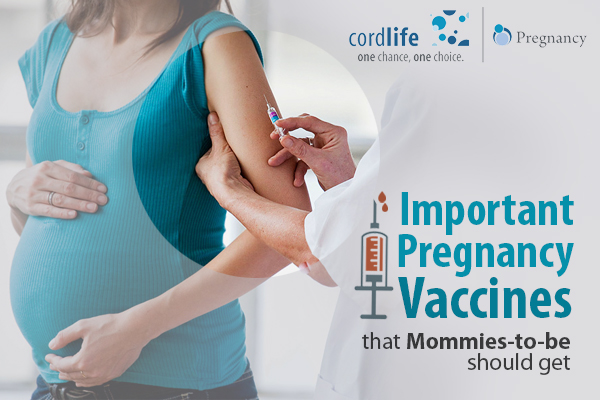Table of Contents
During pregnancy, your body undergoes a lot of immunological changes that leave you and the baby in your womb susceptible to certain infectious diseases1. These infections are responsible for morbidity and mortality in mothers, neonatal and even infants. Since the immune systems of neonatal and preemies are not fully developed, they are at a greater risk of contracting these deadly infections. Therefore, mommies-to-be must be vaccinated before and during the gestation period. This helps in mother-to-fetus transfer of antibodies through the placenta. These life-saving antibodies stay in the newborn’s body up to 6 months after their birth offering them protection from various infections.
What Vaccinations Should You Get During Pregnancy?
The most important thing to keep in mind while getting a maternal vaccination is ensuring its safety. It is crucial to consult your doctor before you go and get yourself vaccinated. Most gynecologists recommend pregnant women to get the following vaccines as they are essential and safe:
Tetanus Vaccine
Clostridium tetani bacteria can enter your body through small cuts or wounds triggering a life-threatening infection called Tetanus or Lockjaw. These bacteria produce toxins that cause serious health problems like cramping of the jaw, making it impossible to swallow or breathe. An unhealed umbilical stump can also cause neonatal tetanus in newborns. You can avoid this by getting the first dose of tetanus vaccine within 4 weeks after your pregnancy is confirmed.
Hepatitis A Vaccine
This highly contagious liver disease is caused by the ingestion of contaminated food or water. The Hepatitis A virus is a waterborne pathogen that can create complications during pregnancy like preterm delivery, placenta abruptions, premature rupture of membranes, and premature uterine contractions. It may not be fatal, but if detected, can cause a lot of distress. Getting a Hepatitis A vaccine is the best way to gain protection against this virus.
Hepatitis B Vaccine
Like Hepatitis A, this disease too primarily affects the liver. It is caused by the Hepatitis B Virus (HBV) and has a higher risk of mother-to-fetus transmission. According to studies2, 90% of infected mothers transmit HBV infection to their babies. Babies affected by this virus have a 90% chance of developing a chronic, lifelong liver infection such as liver damage, liver cancer, etc3. It is advised that you and your family members get tested for HBV as soon as possible as the infection can spread easily through blood, semen or other bodily fluids. As a part of preventive care, you should get the Hepatitis B vaccine if you have never received one as a child.
Influenza Vaccine
The common flu may not sound as alarming but can cause severe complications in pregnant women. It is an air-borne illness that puts both the mother and unborn child at a high risk of severe infection. Since the immune systems of expectant moms are compromised, contracting influenza can lead to preterm labour and even fatality. Getting an inactivated influenza vaccine early on during pregnancy can help protect yourself and your little one.
Whooping Cough Vaccine
This is an extremely serious infection in newborns that can require hospitalization. If untreated, it can also be life-threatening. As newborns are too young to be vaccinated against this disease, it is recommended that moms-to-be get vaccinated so that the antibodies can be passed on to the baby in the womb.
What Vaccinations Should You Get After Delivery?
Measles, Mumps, Rubella (MMR) Vaccine
These diseases are highly contagious and can spread to a newborn through coughing, sneezing or close contact. If the mother develops one of these diseases, it is highly possible that the baby may contract it too. It can cause serious health problems in infants and young children. Hence, you must get an MMR vaccine soon after your delivery.
Chickenpox Vaccine
Like MMR, this too is a highly contagious disease that causes blister-like outbreaks throughout the body. It is caused by the varicella-zoster virus and can be dangerous if spread to a newborn. If you have never had a chickenpox vaccine and have delivered a baby, then you should consider getting yourself immunized to this disease.
If you are getting a vaccine during or after the pregnancy, you may experience mild side-effects like soreness, pain or swelling. This usually occurs around the vaccinated area. You may even have a slight fever or muscle-ache after receiving the vaccine. However, this is temporary and will go away on their own.
Maternal vaccines help in preventing serious infections like the ones above. If you have more questions regarding the right vaccination for you, please consult your gynecologist.
